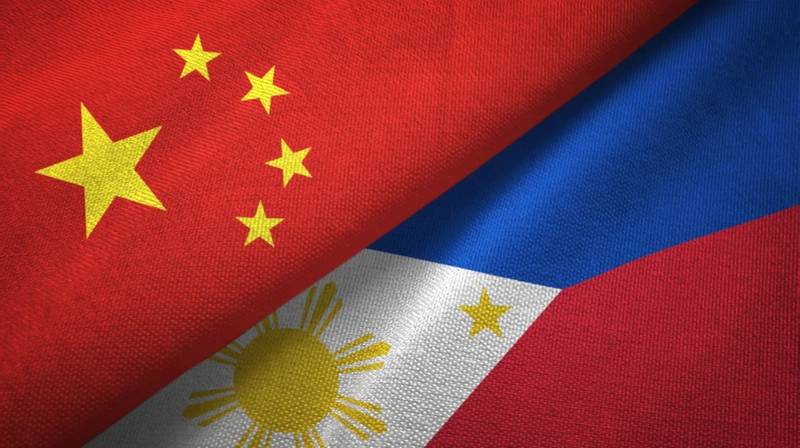China Objects to New Philippine Maritime Laws Covering South China Sea Areas
China summoned the Philippines' ambassador on Friday to express its objection to two new laws in the Southeast Asian nation asserting maritime rights and sovereignty over disputed areas of the South China Sea, its foreign ministry said.
China made "solemn representations" to the ambassador shortly after Philippine President Ferdinand Marcos Jr signed the Maritime Zones Act and the Archipelagic Sea Lanes Act into law to strengthen his country's maritime claims and bolster its territorial integrity.

The Maritime Zones law "illegally includes most of China's Huangyan Island and Nansha Islands and related maritime areas in the Philippines' maritime zones," Beijing's foreign ministry spokesperson Mao Ning said, using the Chinese names for Scarborough Shoal and the Spratly Islands respectively.
Beijing has rejected a 2016 ruling by The Hague-based Permanent Court of Arbitration which said its expansive maritime claims over the South China Sea had no legal basis, in a case that was brought by Manila.
The United States, a Philippine ally, backs the court's ruling.Marcos said the two laws he signed, which define maritime entitlements and set designated sea lanes and air routes, were a demonstration of commitment to uphold the international rules-based order, and protect Manila's rights to exploit resources peacefully in its exclusive economic zone (EEZ).
"Our people, especially our fisher folk, should be able to pursue their livelihood free from uncertainty and harassment," Marcos said. "We must be able to harness mineral and energy resources in our sea bed."
But Beijing said the laws were a "serious infringement" of its claims over the contested areas.
"China urges the Philippine side to effectively respect China's territorial sovereignty and maritime rights and interests, to immediately stop taking any unilateral actions that may lead to the widening of the dispute and complicate the situation," Mao said.
China, which also has sovereignty disputes with the other countries in the region, has in the past enacted domestic laws covering the South China Sea, such as a coast guard law in 2021 that allows it to detain foreigners suspected of trespassing.
Beijing, which uses an armada of coast guard ships to assert its claims, routinely accuses vessels of trespassing in areas of the South China Sea that fall inside the EEZs of its neighbours, and has clashed repeatedly with the Philippines in the past year.
Philippine officials acknowledged the challenges they face in implementing the new laws, with one author, Senator Francis Tolentino, saying he did not expect a reduction in tensions.
"China will not recognise these, but the imprimatur that we'll be getting from the international community would strengthen our position," Tolentino told a press conference.
(Reuters - Reporting by Karen Lema and Mikhail Flores in Manila and Joe Cash in Beijing; Editing by Martin Petty and John Mair)
